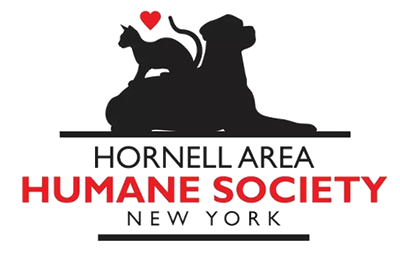Get in touch
607-324-1270
hahs1@yahoo.com
Bregenzer Barn Cat Program
The cutest pest control around!
Adopting a barn cat is the safest way to control the rodent population in barns, sheds, around your home, warehouses, wineries, etc. There are no poisons for children and pets to get into and no need to set traps! Barn Cats will keep rodents away AND you’ll have the satisfaction of giving them a much needed home.
Generally speaking, barn/working cats are under socialized/feral and prefer to limit their interactions with humans. These cats are not suitable as house pets, but thrive in a "working" environment where they can patrol the property and put their natural hunting skills to use. The degree to which they keep their distance varies from cat to cat and may change over time. Even those who prefer to keep their distance may grow close with their caregiver after positive encounters with people. They often develop strong bonds with other animals, often reducing their desire to roam, which is why we recommend that at least two cats be placed together.
Our Bregenzer Barn Cat Program allows us to give these cats a second chance to live a fulfilling life with a family who cares for them, and you get a rodent-free property in return!
What We Provide
- HAHS will ensure that the cats are vetted prior to adoption, which includes
- spay/neuter
- vaccines (rabies & distemper)
- testing for FeLV/FIV
- HAHS will happily loan acclimation crates and supplies (dishes, litterbox) if necessary. All loaned supplies will need to be returned to HAHS after the release of the cats.
How It Works
- The cats must be confined for 3-4 weeks in their new home while they adjust to their new surroundings and get to know their caretakers.
- The adopters must be willing and able to provide the cats with fresh food, water, and shelter daily, all year round.
- The adopter must be willing and able to provide routine veterinary care (future vaccinations) as well as medical treatment for any injury or illnesses that may arise. Trapping may be necessary.
If you are interested in adopting a pair of barn cats, please submit an application. Once we receive your completed Barn Cat Adoption Agreement, you will receive updates when we have barn cats available for adoption.
Please note: We do not believe in relocating existing feral cats from their current locations, and cannot accept them into our care. Occasionally a feral cat may come through a TNR Program, and is unable to return to their previous colony for various reasons. In this case they would be in seach of a new home and eligible for our barn cat program. On occasion we have owner surrendered cats who may develope various behavioral problems, making them unsuitable to adopt out as house cats, and would better serve as barn cats instead.
Working cat FAQS
-
How do I get ready for my working cats?
With just a little bit of preparation, you can create the perfect home for a working cat. When your working cat comes home, you will want to have a basecamp ready for them. This is a secure area like a tack room, feed room, or large dog crate (HAHS can loan you one if you need). This basecamp should have everything they need including a spot for the crate they come home in, food, water and litter. Your working cat should stay in this base camp for 3-4 weeks to acclimate to their new setting and learn this is where their food is before being released.
-
How can I care for my working cats in the winter?
New York winters can get cold! Your working cat can handle it, but it’s important to prepare. While working cats will grow a thicker coat in the winter, you will need to provide them with an insulated shelter where they can take cover from the elements. This might be a barn, stable, warehouse, workshop, or if none of those are available an insulated cat house stuffed with straw can be a good option. Inside your shelter, your cat would love straw to snuggle down in as well. We recommend also providing your cat with a heated water dish that can be found at most feed and supply stores, which will keep the water from freezing. If the heated water dish is not an option for you, make sure to check the water dishes twice a day when temperatures are below freezing.
-
How often do I need to provide food and water for my working cats?
Fresh food and water must be provided daily.
-
Do I need to take my working cats to the vet?
All barn cats adopted from HAHS will come spayed/neutered, vaccinated (rabies and distemper), tested for FELV/FIV, and microchipped). It is recommended to continue with routine vaccinations throughout their life, and to provide care for injury/ illness when necessary (trapping may be necessary).
-
Is it required to adopt 2 barn cats?
We prefer to send barn cats out in pairs as the do much better with a buddy, however if there are already barn cats on the peoperty, we may consider sending them out individually.
-
What is the fee for adopting barn cats?
There is no fee when adopting barn cats, however a donation is greatly appreciated!
Get In Touch
Visit Us
- Sun - Mon
- Closed
- Tue - Sat
- -
All Rights Reserved | Hornell Animal Shelter
